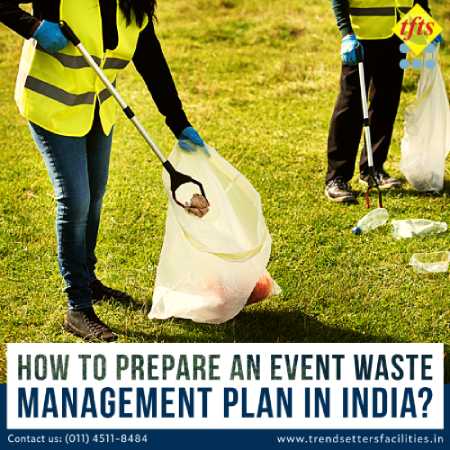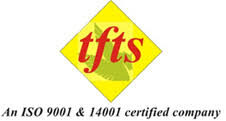
India is a land of events and festivals, and any event, whether it is a wedding, religious ceremony, or sports event, witnesses a surge in waste generation that has a negative impact on our environment. According to studies, India generates millions of tons of waste annually from events. To tackle this issue and reduce the carbon footprint associated with events, it’s imperative to devise a comprehensive event waste management plan. Let’s find out how we can achieve this with the expertise of Trendsetters Facilities and Technical Services (TFTS), a leading housekeeping services provider for events in India.
Prior Planning Before the Event
Effective event waste management begins with proactive pre-planning to ensure all stakeholders grasp the significance of waste minimization. Establishing clear waste goals, such as zero landfill waste or full food waste composting, is crucial. Engaging stakeholders early encourages idea exchange and cultivates buy-in. This proactive approach ensures a well-coordinated waste management plan that aligns with environmental objectives and maximizes event sustainability.
Know your Event Location and Logistics

Understanding the location and logistics of an event plays a crucial role in planning effective waste management. By assessing the waste infrastructure at the venue, event planners can determine the availability of recycling bins, waste disposal facilities, and accessibility for waste collection vehicles. This knowledge enables them to identify any necessary improvements or adjustments needed to meet waste reduction targets efficiently. With clear insights into the venue’s waste handling capabilities, planners can implement strategies that maximize recycling, minimize waste generation, and ensure seamless waste collection and disposal during the event.
Budget Allocation
Allocating a portion of your event budget to cover waste management expenses is imperative for ensuring an effective and integrated waste management plan. By estimating costs associated with waste disposal, recycling services, collection, transportation, and necessary equipment or personnel, you prioritize responsible waste management as an integral component of your financial planning. This proactive approach not only ensures that waste management is not overlooked but also enables seamless execution of sustainable practices, minimizing environmental impact while enhancing the overall success and reputation of your event.
Understand the Type and Quantity of Waste To Be generated
Conducting a waste audit at your event means examining the types and amounts of trash produced, like food, packaging, paper, and plastics. This information helps you find ways to manage waste better by reducing, reusing, and recycling. Ultimately, it’s about organizing to minimize waste and protect the environment. Thus, waste audits make events cleaner, greener, and more sustainable!
Waste Reduction Strategy
Waste reduction is crucial for effective event waste management. Following “reduce, reuse, recycle, and compost” principles helps minimize waste and promote sustainability. Encouraging attendees and vendors to avoid single-use items like disposable cutlery is key. Collaborating with vendors for eco-friendly practices and appointing a waste management coordinator enables tailored programs to minimize wastage. Monitoring waste generation identifies recycling opportunities, ensuring enjoyable and eco-friendly events.
Proper Waste Collection System
Efficient waste collection is vital for event waste management. Overfilled bins waste time and create a mess. Correct bin sizes and regular service prevent odor and overflow. Proper labeling ensures waste sorting accuracy. Clear communication with waste removal companies ensures timely pickups, essential for a clean event space.
Post-Event Review
Post-event reviews play a crucial role in effective waste management plans for events by allowing organizers to assess the effectiveness of waste collection processes, identify areas for improvement, and ensure proper disposal or recycling of remaining waste. Through this review, organizers can refine their waste collection strategies, enhance communication with waste removal companies, and implement measures to prevent overfilling of bins, ultimately maintaining a clean and sustainable event environment.
Therefore, for a successful and sustainable event, meticulous planning, understanding of location logistics, budget allocation, waste auditing, reduction strategies, efficient collection systems, and post-event reviews are imperative. By implementing these steps, we can minimize waste, promote environmental responsibility, and ensure memorable experiences for attendees.
